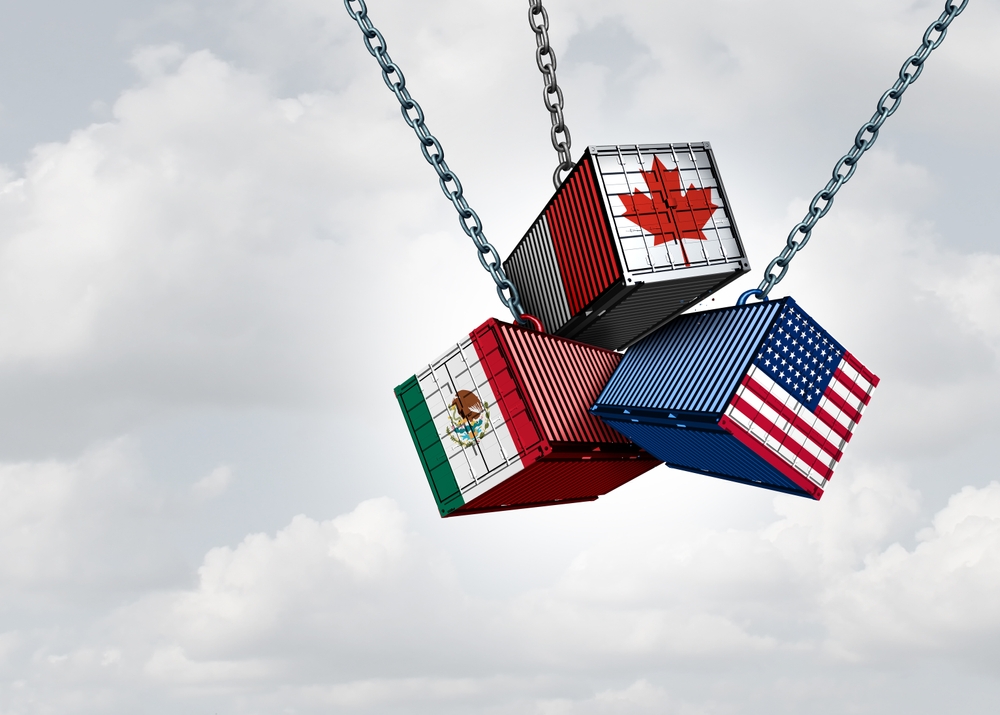Global trade thrives on consistency. When tariffs are introduced, that consistency can be shaken like a house of cards. For companies involved in logistics, these changes aren’t just policy shifts—they’re a direct hit to operational costs, timelines, and supplier relationships. But what exactly are tariffs, and how do they impact logistics? Let’s break it down.
What Are Tariffs?
A tariff is essentially a tax placed on imported goods. Governments use them for various reasons: to protect local industries, respond to trade disputes, or generate revenue.
In recent developments, the U.S. has imposed a 25% tariff on steel and aluminum imports, aiming to bolster domestic industries.
This move has significant implications for sectors like construction, automotive, and machinery manufacturing, potentially leading to increased costs and supply chain adjustments.
Additionally, the U.S. has announced a 10% tariff on imports from China, effective from February 4, 2025.
These policy shifts underscore the importance of adaptability in the logistics industry. Staying informed and agile is crucial for businesses to navigate the evolving trade landscape effectively.
However, while tariffs can help domestic producers sometimes, they also drive up costs for companies that rely on foreign materials or goods, forcing these businesses to make tough decisions.
How Tariffs Affect Logistics and Supply Chains
When a tariff is imposed, its effects ripple throughout the supply chain. Think of it like tossing a rock into a pond: the initial splash is just the start.
Here’s a closer look at those ripple effects:
Higher Costs for Raw Materials and Goods
Companies importing goods now face extra fees. They can either absorb these costs or pass them on to customers, both of which can harm profitability or consumer demand.
Supplier Disruptions
Businesses often try to sidestep tariffs by shifting to alternative suppliers. However, new suppliers may not be as reliable or cost-effective, which can introduce delays, quality issues, or logistical headaches.
Changes in Trade Routes
Tariffs often lead to shifts in trade patterns. Companies might reroute shipments to avoid taxed regions, causing changes to transportation schedules, port operations, and inventory management strategies.
For example, during the 2018 tariff hikes on steel and aluminum imports, the U.S. saw manufacturers scramble to find new suppliers, leading to delayed production timelines and increased operational inefficiencies.
Short-Term vs. Long-Term Impacts of Tariffs
In the short term, tariffs create chaos for logistics management. Companies may face sudden cost increases, production halts, and fluctuating demand. However, markets tend to stabilize over time. Businesses learn to adapt by diversifying their supplier networks, renegotiating contracts, or moving production closer to key markets to avoid cross-border fees.
For instance, many U.S. manufacturers began exploring nearshoring—relocating production to nearby countries like Mexico—after facing sustained tariffs on Chinese imports. This strategy reduced costs and improved lead times and supply chain resilience.
Key Challenges for the Logistics Industry
Let’s face it: running a supply chain under normal circumstances is already challenging. Add tariffs to the mix, and companies have even more hurdles to overcome. Here are three common challenges:
- Price Volatility: Material and transportation costs fluctuate, making budgeting a nightmare.
- Supplier Reliability: Switching suppliers can introduce unexpected risks if they can’t meet quality or volume expectations.
- Operational Complexity: New tariffs may require changing routes, documentation, and compliance procedures, leading to potential delays and increased administrative burdens.
Despite these challenges, many logistics companies see tariffs as opportunities to innovate. By reassessing supply chain strategies, businesses can streamline operations and build long-term resilience.
Strategies for Adapting to Tariff Changes
So, how can companies weather tariff disruptions? Here are some key strategies that have proven effective in today’s fast-changing environment:
Diversify Your Supply Chain
Don’t put all your eggs in one basket. Companies can reduce their risk exposure when tariffs target a specific country by working with multiple suppliers across different regions.
Invest in Predictive Analytics
Technology can help companies simulate various trade scenarios. Advanced analytics tools enable businesses to forecast the financial impact of tariffs, optimize their inventory levels, and improve demand planning.
Enhance Collaboration with Logistics Partners
Strong relationships with logistics providers can make all the difference. These partners can provide real-time updates, help navigate customs procedures, and recommend alternative shipping routes to minimize delays.
Brave The Road Ahead With GFS Logistics
While tariffs will likely remain a feature of global trade policy, companies that stay adaptable and forward-thinking can not only survive but thrive. The logistics industry is no stranger to change, and with the right strategies, businesses can turn tariff challenges into opportunities for growth.
At GFS Logistics, we’ve seen it all—from sudden trade wars to long-term shifts in sourcing strategies. We believe in empowering our clients with the tools and insights they need to stay ahead of the curve. If your business is facing tariff-related disruptions, let’s talk about how we can help streamline your logistics and supply chain operations.
Contact us today to learn more about our services.


